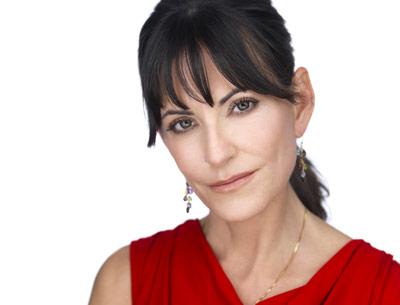Using Good Food for a Good Fight

As an investment banker, Susan Bratton found her work intellectually stimulating, but, she said, “I didn’t feel like I was helping anybody out. When you die and are gone, what mark have you left? I didn’t think I was leaving much of a mark.”
Ms. Bratton, who lives in Amagansett and Manhattan, was a health care investment banker for 20 years, working with health maintenance organizations, nursing homes, and rehabilitation facilities. In 2010, she changed course and founded Meals to Heal, which delivers meals that are customized to the specific needs and tastes of cancer patients at home. The company was officially launched last year. But real-world, personal experiences were to have a deep impact on Ms. Bratton’s career path.
“My friend Eric got a brain tumor,” she said. “Going through that with him and watching him struggle with nutritional issues, I became really struck by the fact that the medical community was telling him to eat whatever he wanted and that it didn’t matter.”
After her friend’s death, Ms. Bratton read “probably 400 or 500 peer-reviewed journal articles” on the role of nutrition in cancer treatment. “I didn’t realize that 50 to 80 percent of all cancer cases involve nutritional issues,” she said. “A third of all cancer deaths are due to severe malnutrition. It’s a huge, pervasive issue, yet there was nobody really providing solutions.”
Because meals can be delivered to people who want to lose weight, she asked herself why meals couldn’t be provided for cancer patients, along with information about what is safe and nutritional counseling. “That was the genesis,” she said.
Another personal experience both delayed the company’s launch and informed her business plan. Two weeks after leaving her job to start Meals to Heal, Ms. Bratton’s father was diagnosed with cancer and given six months to live. “The good news is, he responded to treatment and was able to have a bone- marrow transplant. Now he’s 83 years old and fly-fishing and doing all the things he loves.”
Ms. Bratton added a food consultant to the start-up, Bryan Janeczko, who founded Nu-Kitchen, which provides meals for weight loss, and happens to have a house in East Hampton. Meals are now delivered in the 48 contiguous states via Federal Express, in cooler containers surrounded by ice packs and sealed. They engaged a company in Iowa to do the preparation and packaging. “In addition to having cost benefits just because they’re a much bigger company,” Ms. Bratton said, “they have two safety people on site daily, so they have a perfect safety track record.”
Meals are based on the Mediterranean diet, replacing butter with healthy fats such as olive oil, and strictly limiting red meat in favor of fish and poultry. Within that framework, meals are customized. “It’s a well-balanced diet of macro and micronutrients. . . and then you tailor it,” Ms. Bratton said.
Healthy diets were nothing new for Ms. Bratton, who became a vegetarian 30 years ago and would recommend that others do the same. “But what I learned with my dad was, if you want somebody to eat a well-balanced diet, you really need to have them eat the healthiest food they can that they want to eat. Then they’ll eat it and won’t lose weight.”
Feedback has been positive, Ms. Bratton said, particularly from nurses, social workers, and other professionals who assist patients in all stages of cancer care. “They’re the ones that are really on the front lines with the side-effect management and nutritional issues,” she said.
Nine dietitians serve as a customer service team. “They’re really smart about the clinical side of oncology nutrition,” Ms. Bratton said. “It was really important to me that whoever is on our end of the phone is kind and caring and empathetic, because people with cancer and people who are caring for people with cancer are so stressed out, so concerned.”
It is too early to measure results, Ms. Bratton said, but a clinical trial studying a population of breast cancer patients who receive Meals to Heal foods is under way.
“Proper nutrition improves outcomes. It provides you with support so that you’re well nourished, you respond better to treatment, you don’t stop treatment, you don’t get admitted to the hospital, you don’t become malnourished,”she said.
